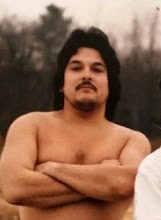At least the passengers survived this accident
___________________________________________________
Report: Islander ditching following engine failure caused by overloading
The Dutch Safety Board published the results of their investigation into an accident involving a BN-2 Islander aircraft of Divi Divi Air in October 2009.
The airplane suffered a right hand engine failure shortly after takeoff from Curacao on an inter-island flight to Bonaire. The pilot elected to continue to Bonaire on the remaining engine. Altitide could not be maintain and the airplane ditched off Bonaire. The pilot was killed in this accident. The nine passengers escaped the airplane relatively unharmed and were picked up by boats nearby the crash site.
The investigation showed that the airplane was unable to maintain horizontal flight after one of the engines had failed, due to overloading. The airplane was overloaded by 9%. With the continuation of the flight under these circumstances the pilot took a completely unacceptable risk. Furthermore the Board has established that Divi Divi Air used standard passengers weight that were too low. A random audit revealed that the maximum takeoff ‐ and landing weights, were systematically exceeded.
The investigation also revealed that the Divi Divi Air management insufficiently supervised the safety of the flight operations of their airplanes. Also safety oversight conducted by the Netherlands Antilles Directorate of Aviation was limited. In this light, the Safety Board referred to the ICAO audit that was conducted in 2008. This audit revealed many deviations of the ICAO standards and regulations. The Board is concerned about safety oversight on civil aviation at Curacao.
The results of the investigation have resulted in recommendation of the Board to Divi Divi Air and the Minister of Traffic, Transportation and Spatial Planning of Curacao and the Governor of Bonaire.
More information:
